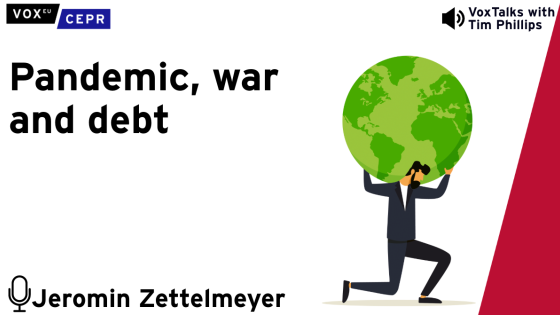The global financial crisis exposed the G7 as an outdated and ineffective forum for global economic governance. In order to reinforce their credentials and their capacity, the G7 turned to the G20 and upgraded it from merely a gathering of finance ministers and central bankers to one that includes heads of state.
This change has created an opportunity for the medium-sized members of the new club such as South Africa. But these countries can only take advantage if they focus on a clear, long-term vision of global economic governance and use this to inform a more pragmatic and obtainable short-term agenda.
State of transition in geo-political power
While the G20 is emerging as potentially the most important international forum for global economic governance, the shift in power away from the G7 should not be overstated. The old G7 countries may have accepted the G20’s pre-eminence in economic matters, but they have not surrendered control over the agenda. The issues that matter most to the G7 countries continue to dominate discussions in the G20. The shifting balance of power simply means that G20 members can participate in the discussions and work to influence their prioritisation and their outcome.
The shift in balance of power has only advanced far enough to deprive the G7 of their previous dominance, but the rising powers have not yet gained sufficient power to have either the will or the ability to take over leadership of the global economic system (see Martinez-Diaz 2007). Until the process of rebalancing global power has played itself out and the relative positions of the new and old powers are clarified, the situation is an unstable one in which the institutional arrangements for global governance are likely to remain partial, unsatisfactory, and unsustainable.
A long-term vision of global governance: Five principles
In light of this, the middle powers in the G20 can only effectively exploit the – albeit limited – opportunities arising from their participation in the forum if they base their actions on a long-term vision of global economic governance. This vision should be based on the following five principles (see Bradlow 2010 for more details).
1. A holistic vision of development
Global governance needs a holistic definition of development. This requires viewing all states as developing states striving to create better lives for their citizens. While states may differ in defining their responsibilities in this regard and on which aspects of the development process they wish to prioritise, they all agree that the well-being of both individuals and societies can be positively or negatively affected by a range of economic and non-economic factors. They should all therefore see development as a comprehensive and holistic process in which the economic aspects cannot be separated from the social, political, environmental, and cultural aspects, all of which are integrated into one dynamically integrated process (see for example UNDP 1990, Sen 1999, and Bradlow 2005).
2. Comprehensive coverage
Comprehensive coverage means that the mechanisms and institutions of international economic governance should be both applicable to and responsive to the needs of all stakeholders in the international economy. For example, the mechanisms of international financial governance must incorporate both the operations of financial intermediaries that engage in national and cross-border financial transactions and the interests of their customers. There are three propositions that follow from this principle:
- First, the mechanisms of international economic governance must be sufficiently flexible and dynamic that they can adapt to the changing needs and activities of their diverse stakeholders.
- Second, the totality of international economic governance arrangements must ensure that the international community receives all the services it requires from a well functioning global economic system.
- The third corollary is “subsidiarity” –the governance arrangements should ensure that decisions are taken at the lowest level in the system consistent with effective decision-making.
3. Respect for international law
The institutional arrangements for international economic governance should comply with applicable international legal principles. This means that the decision-making bodies and institutions engaged in international economic governance should conform to universally applicable customary and treaty-based international legal principles. This requires close attention in four areas.
- First is respect for national sovereignty. Although national sovereignty is not absolute, it should still provide states with as much independence and policy space as is consistent with the demands of effective global financial governance.
- Second is the general principle of non- discrimination – the global economic institutions should treat all similarly situated state and non-state stakeholders in the same way. This highlights the need for standards that ensure that all state and non-state stakeholders receive treatment that is fair and reasonable.
- Third is the responsibility of states for the functioning of the global economic system. Based on general principles of state responsibility (UN 2001), foreign entities should receive comparable treatment to similarly situated domestic institutions.
- A fourth set of applicable international legal principles are derived from international environmental law (see for example Hunter et al. 2006). At a minimum these principles would impose on regulators an obligation to insist that all financial institutions and other economic actors fully understand the environmental and social impacts of their practices and of individual transactions.
4. Coordinated specialisation
Even with a holistic view on development and a full consideration of all aspects of international governance, international economic governance cannot function efficiently unless its various institutions have a limited and specialised mandate. This generates two requirements.
- First, the mandate of the mechanisms and institutions of international economic governance must be clearly defined and limited to international economic affairs.
- Second, these institutions must not ignore the other important aspects of the development process.
This means that there needs to be a mechanism for facilitating coordination between the institutions of international economic governance and other organisations and arrangements involved in global governance. The coordinating mechanism, if it is to effectively resolve tensions between the different aspects of international governance, needs to be transparent and predictable. It may also need some form of dispute settlement mechanism.
5. Good administrative practice
The basic principles of good administrative practice in global governance are the same as those applicable to any public institution. These principles are transparency, predictability, participation, reasoned decision-making, and accountability. Stakeholders must have some meaningful way of raising their concerns and having them addressed by the appropriate decision-makers in the institutions. The institutions themselves should be required to explain their decisions and operations to all interested stakeholders.
Tactical issues: Short-term objectives, long-term goals
Clearly, however, there is neither general consensus on this long-term vision nor how to implement it. Moreover, in the current phase of transition in global power, it is not possible to implement this vision. This suggests that the middle powers in the G20 should adopt a pragmatic approach to global economic governance reform. They should concentrate on developing short-term tactics that both result in real benefits for their countries and their citizens and that open up further opportunities for achieving global economic governance reforms that are consistent with their long-term objectives.
Implementing this strategy requires both setting priorities for the short-term and developing a plan of action for achieving the longer-term objectives. For example, given that South Africa’s and Africa’s concerns in the global financial arena are focused on questions of poverty and inequality, South Africa should focus on enhancing Africa’s ability to address these issues.
Given this general orientation, there are two issues in the financial area that offer suitable short-term objectives.
The first relates to financial regulation. South Africa could call for broadening the scope of the banking regulatory reform agenda. It could point out that for many African countries a key issue is the fact that many of their citizens and small companies do not have effective access to financial services. They could add that regulation might help address this issue by encouraging banks to develop new products that are specifically targeted at the problem. South Africa might also remind the rich countries of Paul Volcker’s contention that the most important financial innovation of recent years is the ATM because of its impact on enhancing convenience and access to financial services. It might add that the next innovation of this sort might be cell phone banking, in which Africa is a leader.
The second issue that South Africa and other that middle powers can prioritise is reform of the governance arrangements of the IMF. It is becoming increasingly clear that, regardless of the rhetoric about the need for substantial reform of the IMF’s governance, substantial reform is unlikely to take place in the short term. Consequently, the most realistic reforms are those that are possible within the existing legal framework. One reform that can easily be achieved within this constraint is increasing the IMF’s public accountability. Unlike the World Bank and all the other multilateral development banks, it does not have an independent accountability mechanism. These mechanisms allow non-state actors, who claim that they have been harmed by the failure of these organisations to comply with their own policies and procedures, to have their claims investigated and reported to the Boards of these organisations. The IMF should end its exceptionalism and create its own version of such a mechanism.
Conclusion
Participation in the G20 offers middle powers like South Africa an opportunity to influence the global economic agenda and the institutional arrangements for global governance. Yet given the configuration of geo-political forces its current state of flux, this opportunity is limited. South Africa should therefore combine this short-term substantive vision with a plan of action that seeks allies from both other middle powers, like Australia, Brazil, Indonesia and South Korea, as well as other G20 members including, if appropriate, the G7 countries. In order to maximise the benefits from participation in the G20, these countries must formulate a long-term vision of international economic governance which in turn should form the bedrock for their short-term objectives.
References
Bradlow, Daniel D (2005), “Differing Conceptions of Development and the Content of International Development Law”, South African Journal on Human Rights, 21(1).
Bradlow, Daniel (2010), “Assessing International Financial Reform” in International Law, Economic Globalisation and Developing Countries, J. Faundez and C. Tan (eds) Edward Elgar Press, 2010 (forthcoming)
Hunter, David, James Salzman, and Durwood Zaelke (2006), International Environmental Law and Policy, Foundation Press.
Martinez-Diaz, Leonardo (2007), “The G20 After Eight Years: How Effective A Vehicle for Developing Country Influence?”, Global Working Papers #11, Brookings Institution.
Sen, Amartya (1999), Development as Freedom, Oxford University Press.
UN (2001), “Responsibility of States for Internationally Wrongful Acts”, Report of the International Law Commissio, vol II (Part Two).
UNDP (1990), Human Development Report, Oxford University Press.



